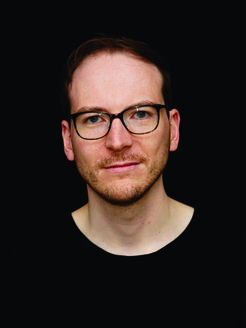Prof. Dr. Lutz Nuhn

Lutz Nuhn graduated in biomedical chemistry at the Johannes Gutenberg-University Mainz (Germany) in 2010. In 2008/09, he practiced first research experience at MIT with Robert Langer and Daniel G. Anderson. For his PhD, he joined the group of Rudolf Zentel in Mainz (Germany) working on multifunctional carriers for peptide and oligonucleotide delivery by reactive precursor polymers. After a research stay with Prof. Kazunori Kataoka at Tokyo University (Japan), he obtained his doctoral degree in 2014. Afterwards, he became a postdoctoral associate in the group of Bruno G. De Geest at Ghent University (Belgium) working on multifunctional nanogels for lymph node focused immune activation. Since summer 2017, he has joined the group of Tanja Weil at the Max Planck Institute for Polymer Science (Mainz, Germany) as a young group leader.
Lutz Nuhn received scholarships from the German National Academic Foundation (Studienstiftung des deutschen Volkes), the Max Planck Graduate Center (MPGC), the Fonds der Chemischen Industrie (FCI), the Alexander von Humboldt Foundation (AvH) and the Research Foundation Flanders (FWO). Since his return to Mainz he has become a Liebig fellow of the FCI and a project leader in the DFG Collaborative Research Center SFB-1066 “Nanodimensional Polymer Therapeutics for Tumor Therapy” (Project B3: "Treating primary and secondary liver tumors by adressing tolerance inducing M2-macrophages with immunomodulating nanocarriers" and B4: “Polymer induced tumor-immunotherapy by in situ activation of antigen presenting cells”). In spring 2019, he was appointed as Emmy-Noether research group leader supported by the German Research Foundation (DFG). In April 2022, Lutz Nuhn was appointed as professor at the Julius Maximilian University Würzburg and is now leading the Chair of Macromoleuclar Chemistry at the Faculty of Chemistry and Pharmacy in Würzburg.
Research Interests
At the interface between materials chemistry and life science we want to design novel polymeric drug delivery systems and study their potency to improve pathogenic phenomena in living cells and tissues. Thereby, our primary research interests focus on the design of nano-sized vaccines and anti-cancer immunotherapies. For this purpose, we develop well-defined block copolymers with self-assembling and responsive properties. The resulting nano-sized carriers can sense various stimuli including temperature, pH or light and provide reactivity to amino acid residues as well as specific receptor binding properties. Key feature of them is their biodegradability towards nanoparticle disassembly under physiologically relevant conditions over time. Towards the development of vaccines against insidious intracellular pathogens and cancer we utilize these nanocarriers for engineering selective immune-responses in vitro and in vivo. Moreover, novel strategies to modulate the immune regulatory properties of the tumor microenvironment are investigated, too, in order to combat cancer via next generation nano-immunotherapeutics.
